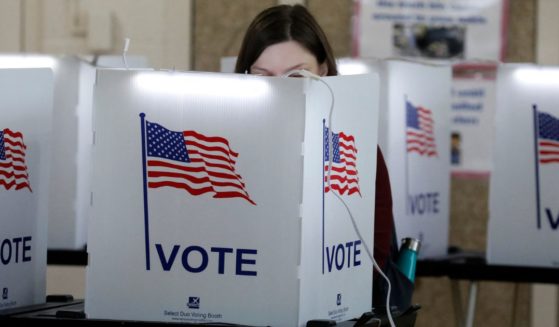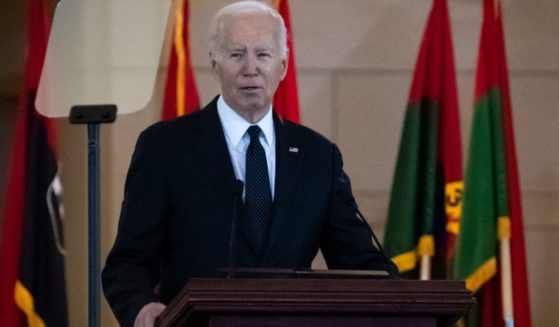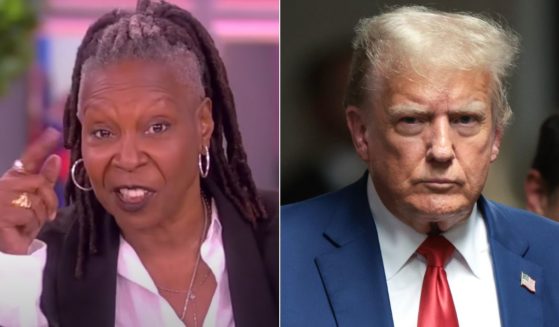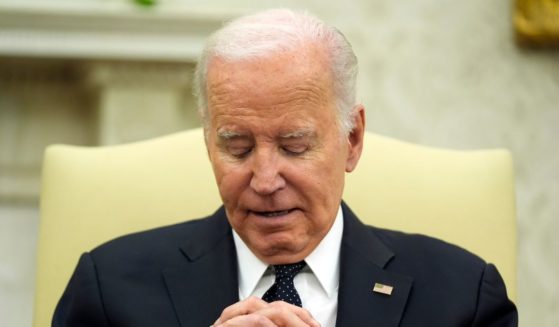Breaking: Supreme Court Deals Crushing Blow to Affirmative Action in College Admissions
In a landmark decision, the Supreme Court has ruled that affirmative action policies pursued by Harvard University and the University of North Carolina violate the Constitution.
In the 6-3 ruling, Chief Justice John Roberts was joined by Justices Samuel Alito, Clarence Thomas, Brett Kavanaugh, Neil Gorsuch and Amy Coney Barrett in the majority. Justices Ketanji Brown Jackson, Elena Kagan and Sonia Sotomayor dissented. Jackson recused herself from the Harvard ruling due to service on a board for Harvard.
“The student must be treated based on his or her experiences as an individual — not on the basis of race,” the opinion said.
A 6-3 ruling with Chief Justice Roberts writing the majority opinion and all of the liberal justices deciding that universities picking and choosing what skin colors they admit is constitutionalhttps://t.co/W6Rxx1XOVt
— Greg Price (@greg_price11) June 29, 2023
“Many universities have for too long done just the opposite. And in doing so, they have concluded, wrongly, that the touchstone of an individual’s identity is not challenges bested, skills built, or lessons learned but the color of their skin. Our constitutional history does not tolerate that choice.”
“Respondents’ admissions systems … must therefore be invalidated under the Equal Protection Clause of the Fourteenth Amendment.”
Breaking and Good News: Supreme Court struck down Affirmative Action: Colleges CANNOT use race for admission. Violates Equal Protection Clause!
— TheLeoTerrell (@TheLeoTerrell) June 29, 2023
“The race-based admissions systems that respondents employ also fail to comply with the twin commands of the Equal Protection Clause that race may never be used as a ‘negative’ and that it may not operate as a stereotype,” the opinion, written by Roberts, said.
“Respondents nonetheless contend that an individual’s race is never a negative factor in their admissions programs, but that assertion cannot withstand scrutiny. Harvard, for example, draws an analogy between race and other factors it considers in admission,” the opinion continued, saying Harvard’s explanation “of the admissions process is hard to take seriously. College admissions are zero-sum. A benefit provided to some applicants but not to others necessarily advantages the former group at the expense of the latter.”
The opinion said that the colleges “suggest that race is not a negative factor because it does not impact many admissions decisions.” It also noted that “respondents also maintain that the demographics of their admitted classes would meaningfully change if race-based admissions were abandoned. And they acknowledge that race is determinative for at least some — if not many — of the students they admit.”
The Supreme Court just ruled against Affirmative Action. Why?
Because it is systemically racist.
Harvard applicants in the top academic decile have different chances of admission depending on their race:
– Asians: 12.7%
– Whites: 15.3%
– Hispanics: 31.3%
– Blacks: 56.1% pic.twitter.com/AhI6p4n14h— The Rabbit Hole (@TheRabbitHole84) June 29, 2023
The opinion said the colleges are guilty of “stereotyping” and implying there is an “inherent benefit … in race for race’s sake. Respondents admit as much. Harvard’s admissions process rests on the pernicious stereotype that ‘a black student can usually bring something that a white person cannot offer,’” the opinion said.
“We have time and again forcefully rejected the notion that government actors may intentionally allocate preference to those ‘who may have little in common with one another but the color of their skin.'”
“The entire point of the Equal Protection Clause is that treating someone differently because of their skin color is not like treating them differently because they are from a city or from a suburb, or because they play the violin poorly or well,” Roberts wrote.
The ruling said the two colleges “fail to articulate a meaningful connection between the means they employ and the goals they pursue.”
“To achieve the educational benefits of diversity, UNC works to avoid the underrepresentation of minority groups … while Harvard likewise ‘guard[s] against inadvertent drop-offs in representation’ of certain minority groups from year to year,” the ruling said.
How insane did Harvard’s affirmative action policies get?
An African American student in the 40th percentile of their academic index is more likely to get it than an Asian student in the 100th percentile.
Black students in the 50th percentile are more likely to get in that… pic.twitter.com/9vvBuQXA24
— Greg Price (@greg_price11) June 29, 2023
“It is far from evident, though, how assigning students to these racial categories and making admissions decisions based on them furthers the educational benefits that the universities claim to pursue.”
“For starters, the categories are themselves imprecise in many ways. Some of them are plainly overbroad: by grouping together all Asian students, for instance, respondents are apparently uninterested in whether South Asian or East Asian students are adequately represented, so long as there is enough of one to compensate for a lack of the other. Meanwhile other racial categories, such as ‘Hispanic,’ are arbitrary or undefined.”
“Indeed, the use of these opaque racial categories undermines, instead of promotes, respondents’ goals. By focusing on underrepresentation, respondents would apparently prefer a class with 15 percent of students from Mexico over a class with 10 percent of students from several Latin American countries, simply because the former contains more Hispanic students than the latter,” the ruling said.
“The universities’ main response to these criticisms is, essentially, ‘trust us,’” the opinion continued, adding that the colleges aruge that “universities are owed deference when using race to benefit some applicants but not others.”
“Universities may define their missions as they see fit. The Constitution defines ours. Courts may not license separating students on the basis of race without an exceedingly persuasive justification that is measurable and concrete enough to permit judicial review,” the opinion said. “The programs at issue here do not satisfy that standard.”
The lawsuit was brought by the group Students for Fair Admissions, which was appealing lower court rulings that upheld the colleges’ programs, according to Reuters.
Truth and Accuracy
We are committed to truth and accuracy in all of our journalism. Read our editorial standards.












